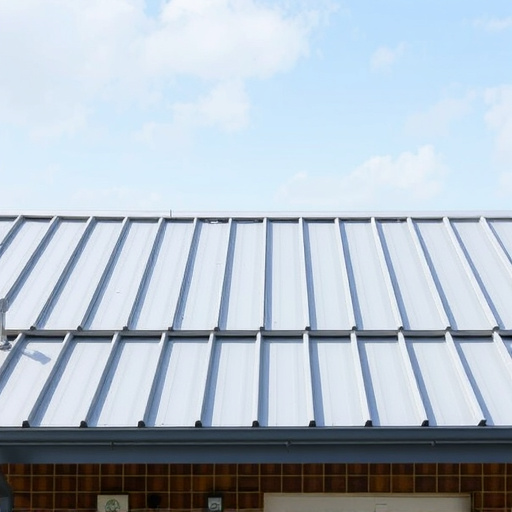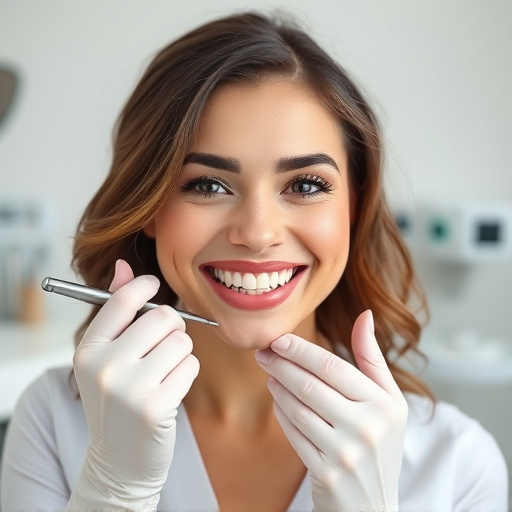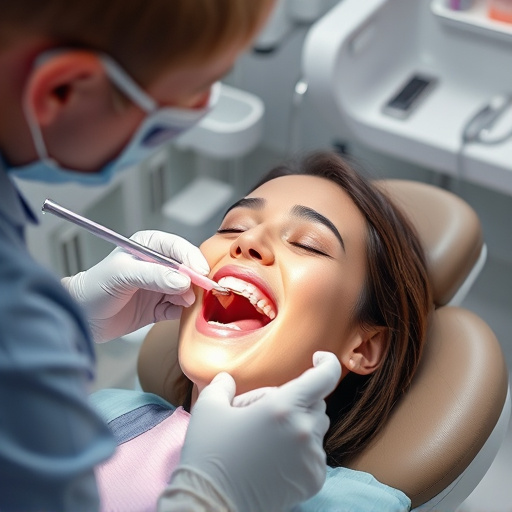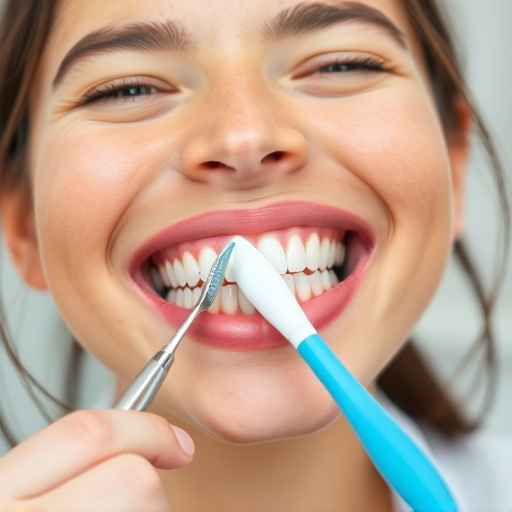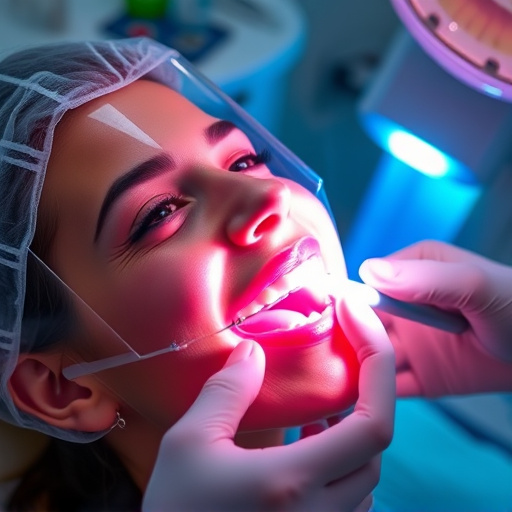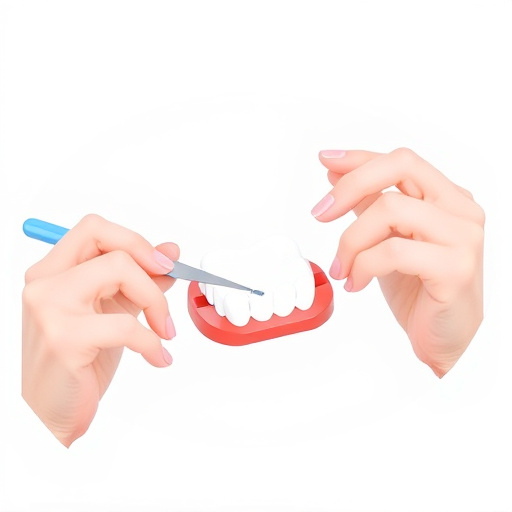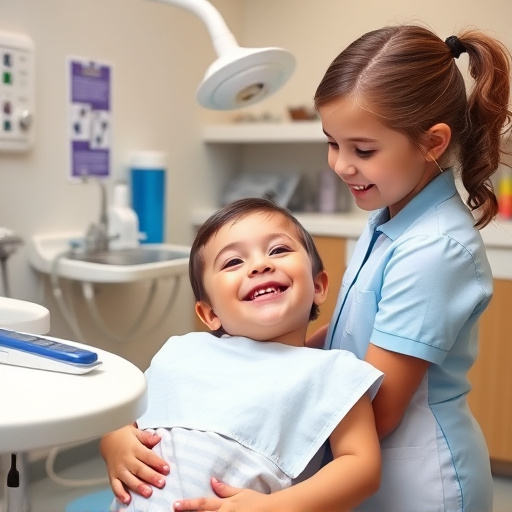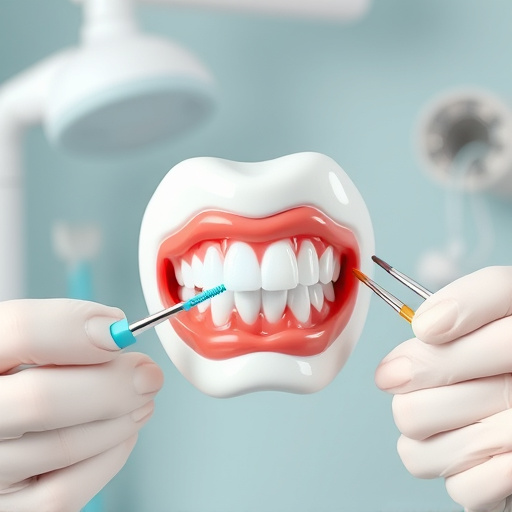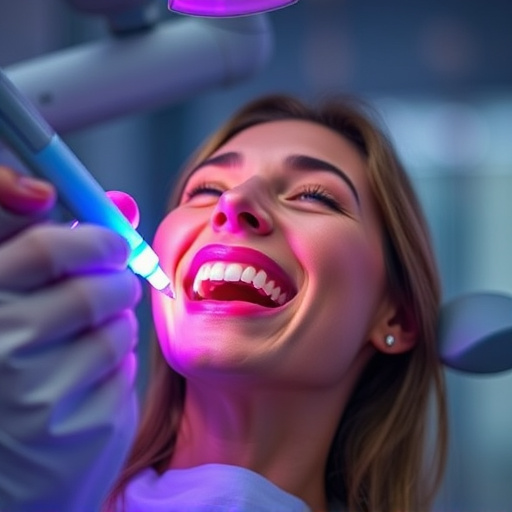Oral hygiene education is key to preventive healthcare, reducing infections like tooth decay and gum disease by controlling bacteria. Proper routines, including effective brushing techniques, flossing, and mouthwash, accelerate healing post-extractions and strengthen oral immunity. Emphasizing these practices in dentistry improves oral health outcomes, fosters self-care, and establishes healthy habits for families.
Oral hygiene is not just about maintaining a bright smile; it plays a pivotal role in strengthening our overall immune system. This article delves into the crucial connection between oral care practices and immunity, offering practical insights for improved oral hygiene education. We explore effective strategies such as understanding proper brushing techniques, integrating floss and mouthwash into daily routines, and why these habits are essential for optimal health. By educating individuals on these simple yet powerful steps, we can empower them to take control of their oral and overall well-being.
- Understanding the Link Between Oral Hygiene and Immunity
- Educating on Proper Brushing Techniques for Optimal Health
- Incorporating Floss and Mouthwash into Daily Routines
Understanding the Link Between Oral Hygiene and Immunity
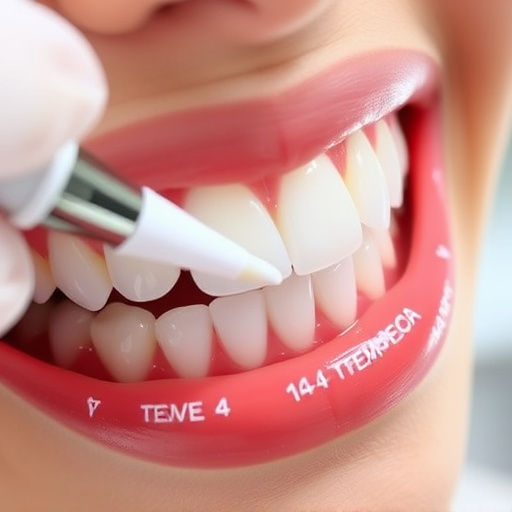
Oral hygiene plays a pivotal role in strengthening our overall immunity. The mouth is the entry point for many pathogens, and poor oral care can lead to systemic inflammation, affecting other parts of the body. By understanding this connection, we can appreciate why oral hygiene education is not just about teaching children how to brush their teeth (children’s dentistry) or performing regular teeth cleaning—it’s a fundamental aspect of preventive healthcare.
Proper oral hygiene routines reduce the risk of infections like tooth decay and gum disease, which are often caused by bacteria overload in the mouth. These bacterial infections can trigger an immune response, leading to increased inflammation throughout the body. This is especially relevant when considering situations that require tooth extractions, where proper post-operative oral care becomes critical for faster healing and preventing complications.
Educating on Proper Brushing Techniques for Optimal Health
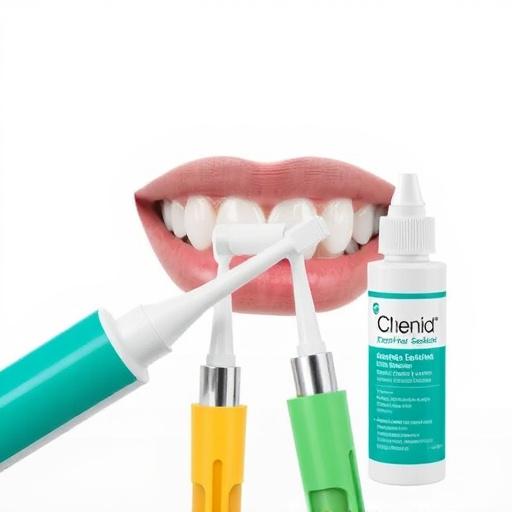
Oral hygiene education plays a pivotal role in empowering individuals to take charge of their oral health. A significant aspect of this is teaching proper brushing techniques that go beyond mere surface cleaning. It involves demonstrating the correct brush angle, stroke direction, and duration for each area of the mouth, ensuring plaque and debris are effectively removed. This includes reaching all surfaces of teeth, tongue, and gums, as well as addressing hard-to-reach spots behind the molars.
By educating people on these techniques, they can prevent various dental issues such as tooth decay, gum disease, and even the need for procedures like dental implants or tooth extractions. Regular practice of these taught methods significantly contributes to maintaining optimal oral health, reducing the frequency of dental cleanings, and fostering a strong immune response within the mouth against infections and diseases.
Incorporating Floss and Mouthwash into Daily Routines
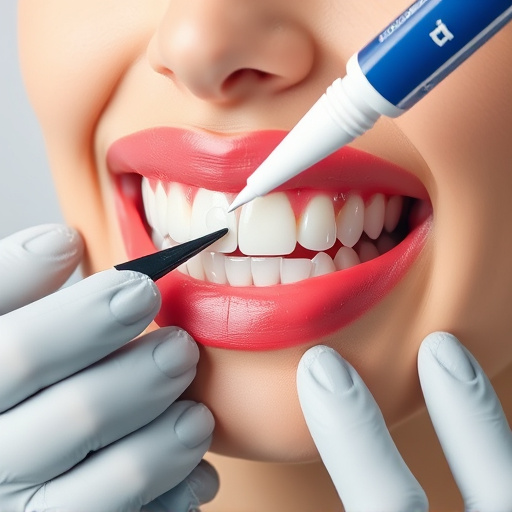
Incorporating Floss and Mouthwash into Daily Routines is a crucial step in any comprehensive oral hygiene education. It’s not just about brushing; maintaining optimal oral health involves a multifaceted approach. Flossing, often overlooked, plays a vital role in removing plaque and food particles from hard-to-reach areas between teeth, preventing gum disease and tooth decay. Regular use of mouthwash further enhances oral immunity by killing bacteria, reducing inflammation, and freshening breath.
Oral hygiene education tailored for both adults and children should emphasize the importance of these simple yet effective tools. Parents, as role models, can instill good habits in their children by making flossing and mouthwashing a consistent part of their daily routines. This not only contributes to better oral health outcomes but also fosters a sense of self-care and responsibility from an early age, setting the stage for a lifetime of healthy dental practices within the family—a key aspect of both restorative dentistry and preventive care in family dentistry and children’s dentistry settings.
Oral hygiene education plays a pivotal role in empowering individuals to take control of their oral health. By understanding the intimate connection between oral care and overall immunity, we can facilitate behavioral changes that strengthen both. Implementing proper brushing techniques, integrating floss and mouthwash into daily routines, and disseminating this knowledge widely are essential steps towards fostering optimal oral health and wellness within communities. Investing in comprehensive oral hygiene education is a proactive approach to preventing dental issues and promoting a robust immune system.


